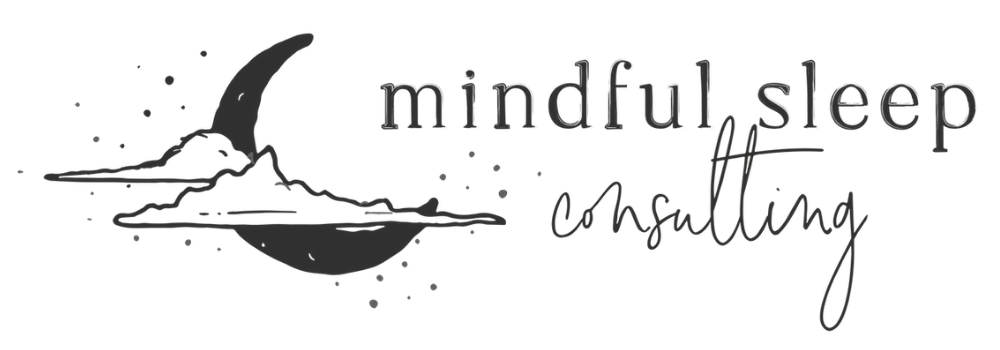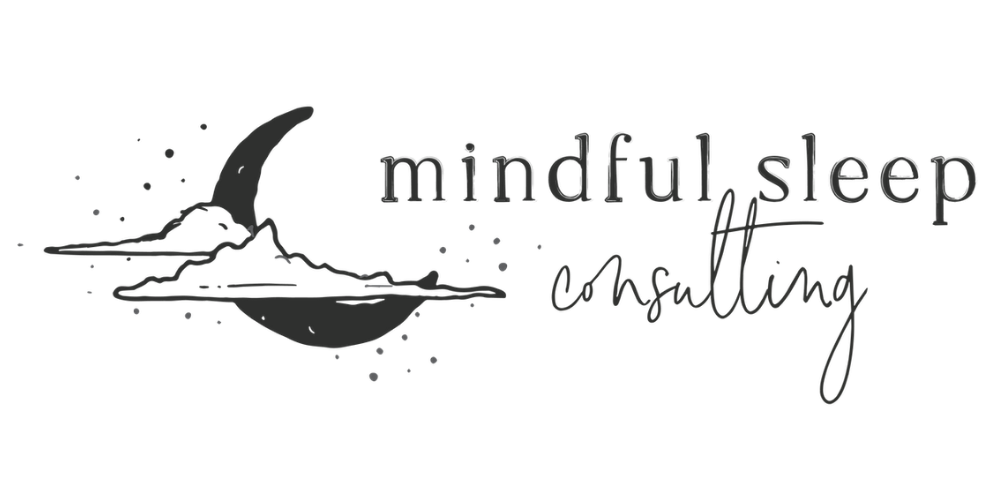5 Sleep Myths to Let go of in 2023
You should…
You need to…
You’ll want to…
All phrases that lead to a wealth of unsolicited and often times, not helpful, advice when it comes to baby. You are swarmed with information from the moment you announce your pregnancy and then it comes in tidal waves once your baby arrives. The intentions are well-meaning, but it becomes overwhelming and I’m sure, like me, you feel lost on which pieces of advice to follow and which to ignore.
The first year postpartum with my second baby was far more difficult than I ever could have imagined. I thought I knew all I needed to know, because everything went so well with my first! I was confident, maybe a little too confident, that baby number two would be just as easy.
However, this little one brought along a variety of issues I had never experienced: fussiness, colic, reflux, torticollis which lead to breastfeeding issues and plagiocephaly, and sleep deprivation like I had never experienced before. My confidence was destroyed and I questioned everything I knew.
I spent countless hours on Google and Pinterest trying to find answers to my questions. The problem I was trying to immediately solve was my baby’s sleep struggles. I felt if I could just get his sleep under control, I would be able to tackle everything else! What I found was an absurd amount of conflicting advice and ‘solutions’.
As a new parent today, you now have social media as an additional search engine to help you find answers to your questions. I’ve found that social media mixes in a lot of personal opinion which can lead to misinformation and guilt or shame. We all want to do our absolute best as parents, but how do you determine which advice is accurate and which is just someone’s opinion?
In my pre-sleep consultant life, I was a pediatric dental hygienist. My schooling ingrained in me the need to research everything in depth to find the most accurate information for my patients and their families. I have carried over this love of research into the sleep world. As a new and tired parent, I know you are looking for factual and concise information to help your family sleep. So today, I want to break down the 5 most common ‘myths’ surrounding baby sleep that I have seen floating around. These pieces of advice are ones I feel lead toward the most confusion and guilt, and should probably be left behind in 2022.
Myth #1: Sleep training negatively affects the parent-child attachment.
The one thing that upsets me the most is the Instagram accounts out there that put so much fear and shame into the hearts of parents just wanting to help their babies get the sleep they need. Sleep teaching (training) is not for every family, and that’s ok! But the fear mongering has to stop. This judgement has such a negative impact on a parent's mental health in a world where we are already struggling to keep up and burning out at alarming rates.
So, no, sleep training does not negatively impact the parent-child attachment. This isn’t just my personal opinion, although I have experienced for myself how sleep teaching can greatly improve attachment, this is the American Academy of Pediatrics. According to a 2016 study conducted by eight of their top researchers, behavioral intervention, (A.K.A Sleep training) “provide(s) significant sleep benefits above control, yet convey(s) no adverse stress responses or long-term effects on parent-child attachment or child emotions and behavior.”
Myth #2: Keep baby up more during the day so they sleep better at night.
This myth will backfire on you. What keeps babies awake at night, more than anything else, is overtiredness. It is common to think that an exhausted baby is more likely to sack out for a full night rather than one who slept all day, but it’s actually just the opposite. The reason we refer to it as being “overtired” is because baby has missed the “tired” phase and their bodies start to kick back into gear, which keeps them from falling and staying asleep. A baby who has gotten a decent amount of sleep during the day is far less likely to miss the sleep window.
So unless your little one is sleeping practically all day and up all night, you probably don’t need to worry too much about the length of their naps. Newborns especially, need a ton of sleep. In fact, up until about 6 months, I don’t recommend that your little one be awake for more than about 2 – 2.5 hours at a time.
For newborns, that number is more like 45 minutes to an hour.
Depending on your baby’s age, how much they sleep at night and the length of their naps, you will see a wide range on how many hours your baby should sleep during the day. So long as your baby’s sleep totals fall within the recommendations for their age, it’s ok to let them snooze during the day!
Myth #3: Sleep can’t be taught.
Sleeping is natural, absolutely. Everybody wakes up and falls back to sleep multiple times during the night, regardless of their age. While you can’t teach a child to be sleepy, you can give them the ability to fall asleep for naps and bedtime, as well as being able to fall back to sleep should they wake, independently.
The baby that is referred to as a “bad sleeper” isn’t less in need of sleep, or more prone to waking up than others. They are just more dependent on outside assistance, such as the pacifier, to fall asleep and get back to sleep when they wake up. Once your little one has figured out how to get to sleep without assistance from outside sources, they start connecting those sleep cycles together more effortlessly. That is the big secret to “sleeping through the night” as most parents understand it!
Myth #4: Babies will naturally dictate their own schedule.
Our babies require extensive care and support in their development, this includes sleep! Unregulated schedules lead to erratic sleep cycles, increased cortisol (the stress hormone) levels and overtiredness. When your baby misses their natural sleep cycle, their cortisol production can increase which causes a surge in energy (A.K.A. a second wind), and things can then quickly spiral out of control.
This is why having set wake and bed times, following wake windows (or having set nap times for older babies) is incredibly important! Not only does a supported schedule promote better sleep for your baby, it also adds some predictability to your day!
Myth #5: Babies are not designed to sleep through the night.
There is some truth to this. No one, not even us adults, sleeps through the night without ever waking up. The difference is that us adults have discovered how to put ourselves back to sleep easily. It is possible to help your 0-6 month old sleep well at night, even with night feeds. It is also possible to have your older baby sleep well at night without feeds!
Remember, there is an endless amount of information online that can appear factual, when in fact they are far from accurate and provide no actual scientific evidence to back them up. Google scholar is a great place to find peer-reviewed scientific studies on all things baby-related, and trusted sources like the American Academy of Pediatrics, the National Institutes of Health, Britain’s National Health Service, Canada’s Hospital for Sick Children, the World Health Organization, and other national children’s health organizations are excellent sources of information you can feel confident about using to answer questions about your baby’s health.
There are obviously plenty more myths and misconceptions surrounding babies and their sleep habits, but I hope I was able to clear a few things up for you!
If you’re reading this and struggling with your baby’s sleep, you don’t have to wait until you reach your breaking point with sleep deprivation to ask for help (like myself and so many others have!).
I offer free 30-minute calls to see if working together would be a good fit. I am here to be your go-to person, to answer your questions and support you, making the sleep training process easier on the whole family!
Cheers to better sleep!
Yasmin Johnston
Your Pediatric Sleep Consultant






